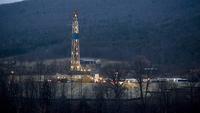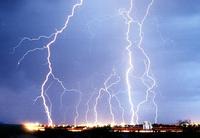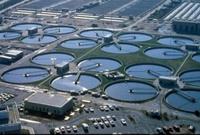-
Terrorism hobbles business investment in north, east Africa

Images of the terrorist attack in Nairobi’s Westgate Mall have reinforced the belief that business investment in those parts of Africa where terrorist groups are active is risky despite improvements in living standards.
-
-
Advancing U.S.-Canada dialogue on border issues
US/Canada Border Conference laid the foundation for a successful annual gathering focused on increased border security and the facilitation of legitimate trade and travel between the United States and Canada.
-
-
How one transportation company survived Hurricane Sandy
In a year-long case study of a major American transportation company, researchers have uncovered the strategies that helped the company maintain safety and meet customer demand during 2012’s Hurricane Sandy. One key to the company’s effective response was its setup of a weather event management team, an ad hoc group that set planning priorities as the storm approached the United States, ensuring the protection of personnel and equipment in hurricane’s path.
-
-
Radioactive shale gas contaminants seep into a Pennsylvania creek

Researchers examined the quality of shale gas wastewater from hydraulic fracturing and the stream water above and below the disposal site in western Pennsylvania. Elevated levels of radioactivity, salts, and metals have been found in river water and sediments at a site where treated water from oil and gas operations is discharged into a creek.
-
-
Arbor Day meets Kyoto: Tree planting promotes carbon capture, green neighborhoods
Schemes which offer economic incentives for growing trees for carbon present an opportunity to reverse trends in land clearing but also to restore ecosystem services — such as pest control, pollination, soil and water conservation. Best practice carbon farming that considers more than just the carbon in trees is thus needed if the full benefits of trees in the landscape are to be realized by farmers, landholders, and the community.
-
-
Hand scanners as mark of the beast
The Equal Opportunity Employment Commission (EEOC) sues a Pennsylvania mining company for forcing an employee into an early retirement after he refused to use a biometric hand scanner to track his hours. The employee argued that using the scanner would violate his Evangelical Christian beliefs in the Bible’s mark of the beast prophecy. According to the Christian Bible, the mark is implanted on the forehead or right hand and symbolizes allegiance to the antichrist.
-
-
U.S. nuclear power industry facing dire prospects
The U.S. nuclear industry is facing several daunting challenges, with industry experts concluding that it may well be an energy source of the past. New construction of nuclear plants has come to a halt, older nuclear plants are closing, and plant expansions are put on hold. The main culprits: the price of natural gas is dropping fast because of new resources becoming available as a result of fracking, and wind and solar are making steady, if slow, gains.
-
-
U.S. to face an increased risk of severe thunderstorms

Severe thunderstorms, often exhibiting destructive rainfall, hail and tornadoes, are one of the primary causes of catastrophic losses in the United States. In 2012, eleven weather disasters in the United States crossed the billion-dollar threshold in economic losses. Seven of those events were related to severe thunderstorms. New climate analyses indicate that global warming is likely to cause a robust increase in the conditions that produce these types of storms across much of the country over the next century.
-
-
Calculating emissions, costs of increased wind, solar in the West
New research quantifies the potential impacts of increasing wind and solar power generation on the operators of fossil-fueled power plants in the West. To accommodate higher amounts of wind and solar power on the electric grid, utilities must ramp down and ramp up or stop and start conventional generators more frequently to provide reliable power for their customers — a practice called cycling.
-
-
ASIS releases updated, expanded edition of “Career Opportunities in Security”
ASIS International (ASIS) announced the publication of the updated and expanded new edition of Career Opportunities in Security. The 36-page booklet provides information of interest to those seeking to learn more about security, and serves as a resource to those considering a career in security management, or wanting to further their existing careers in the industry.
-
-
Border communities decry Washington’s misguided emphasis on border security
Billions of dollars have been spent in an effort to secure the U.S.-Mexico border. Many border communities see investment in cross-border commerce, rather than spending money on fences and patrol agents, as a better way to reduce crime and illegal immigration. “We don’t need more Border Patrol agents — we need more customs agents,” says El Paso mayor John Cook.
-
-
ASIS Foundation contributes to Chicago Public School’s security enhancements
On Friday, 20 September, the ASIS Foundation presented Spencer Technology Academy, in the Chicago Public Schools (CPS), a donation of $42,450 for security improvements. Spencer Technology Academy is the winner of the ASIS Foundation’s School Security Funding Competition. Through a series of short essays, schools in CPS were asked to consider their particular security concerns and what risks they would attempt to reduce or eliminate, along with a list of specific security enhancements they would purchase with the funding.
-
-
Rapidly evolving cybersecurity field too diverse for overly broad professionalization
The U.S. cybersecurity work force is too broad and diverse to be treated as a single occupation or profession, and decisions about whether and how to professionalize the field will vary according to role and context, says a new report. Defined as the social process by which an occupation evolves into a profession, such as law or medicine, professionalization might involve prolonged training and formal education, knowledge and performance testing, or other activities that establish quality standards for the workforce.
-
-
NIST announces five grants to pilot Trusted Identity technologies
The National Institute of Standards and Technology (NIST) has announced more than $7 million in grants to five organizations to fund pilot projects as part of the government’s National Strategy for Trusted Identities in Cyberspace (NSTIC) initiative. The NSTIC initiative is a collaborative effort among the private sector, advocacy groups and public-sector agencies to support technologies that enable individuals and organizations to use secure, efficient, convenient and interoperable identity credentials to access online services in a way that promotes confidence, privacy, choice and innovation.
-
-
Demonstrating bioenergy technology

Researchers plan to demonstrate an innovative bioenergy technology that converts wastewater treatment plant byproducts into hydrogen gas to produce electricity. The demonstration project will start in mid-October, and in about a year the wastewater treatment plant will be processing one ton per day of wet biosolids and will be producing up to thirty kilowatts of electricity. The electricity, in turn, will be used to power select functions at the plant.
-
More headlines
The long view
Factories First: Winning the Drone War Before It Starts
Wars are won by factories before they are won on the battlefield,Martin C. Feldmann writes, noting that the United States lacks the manufacturing depth for the coming drone age. Rectifying this situation “will take far more than procurement tweaks,” Feldmann writes. “It demands a national-level, wartime-scale industrial mobilization.”
Trump Is Fast-Tracking New Coal Mines — Even When They Don’t Make Economic Sense
In Appalachian Tennessee, mines shut down and couldn’t pay their debts. Now a new one is opening under the guise of an “energy emergency.”
Smaller Nuclear Reactors Spark Renewed Interest in a Once-Shunned Energy Source
In the past two years, half the states have taken action to promote nuclear power, from creating nuclear task forces to integrating nuclear into long-term energy plans.
